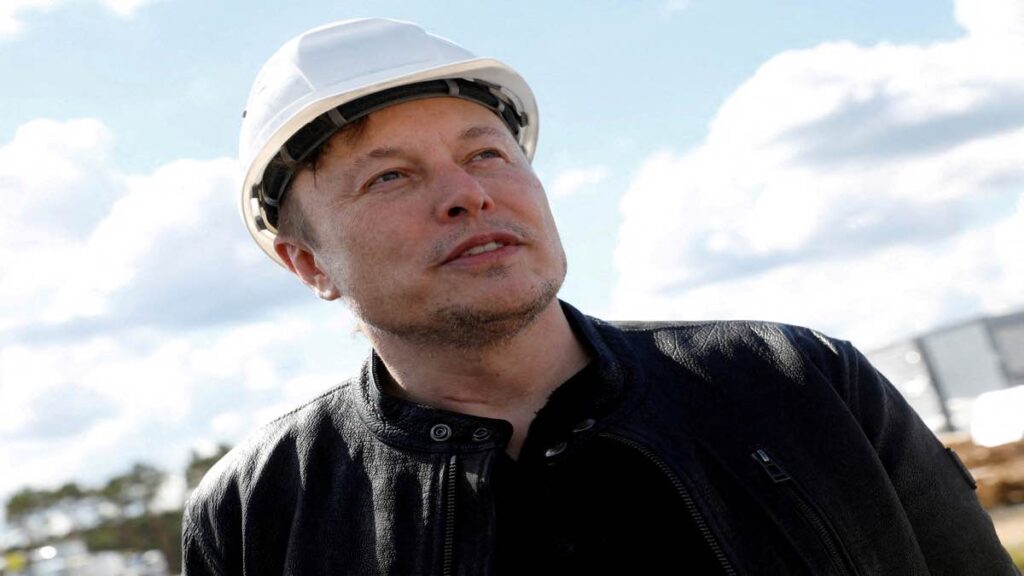
With a stable of businesses ranging from electric cars to private rocket ships, iconoclastic billionaire Elon Musk has become the richest person in the world by building a fortune firmly planted in 21st century technology. With an all-cash $43 billion offer to buy Twitter Inc, Musk may soon emulate the tycoons of the past by controlling a media platform that contributed to his rise to fame.
Musk, the chief executive of electric car maker Tesla, revealed the takeover bid in a regulatory filing made public on Thursday and said he would take Twitter private.
Owning Twitter would be the next evolution of a polarizing figure. Musk has earned Wall Street’s admiration and ire by combining the free-flowing obsessions of aerospace visionary Howard Hughes with an intense focus on revolutionizing auto production reminiscent of Henry Ford into a new model of a billionaire who is as likely to take on short-sellers as he is to shoot a red luxury sports car into orbit, as he did in 2018.
“Whatever your feelings on Musk, he would certainly shake things up, with the only question as to whether he would make things worse or improve them,” said Michael Hewson, chief market analyst at CMC Markets.
Musk, 50, has a $273.6 billion fortune estimated by Forbes that makes him the wealthiest person in the world, worth $92.3 billion more than runner-up Jeff Bezos of Amazon.com Inc. Musk was born in Pretoria, South Africa to a Canadian mother and South African father and later attended the University of Pennsylvania, where he graduated in 1997.
He did not invent rockets or electric cars, nor did he found Tesla, which he has led from 2008. But his insight that Tesla’s electric cars should be high-performance machines with sophisticated, smartphone-style software revolutionized the global auto business, prompting established companies to try to catch up while spurring new, all-electric competitors such as startup Rivian.
While many initially expected Tesla to fail – which it almost did during the 2008-2009 financial crisis and in 2017-2018 when it stumbled through what Musk called “manufacturing hell” in the launch of its high-volume Model 3 sedan – the company began turning quarterly profits in 2020.
Wall Street has underscored Tesla’s achievement by lifting the company’s market capitalization to more than $1 trillion – more than all three Detroit automakers plus Toyota Motor Corp, combined – and making it the fourth-largest company in the benchmark S&P 500 index, the backbone of millions of Americans’ retirement savings plans.
At the same time, his company SpaceX, led day to day by President Gwynne Shotwell, has upended space launch industry incumbents by developing rockets capable of putting satellites into space and returning to Earth for re-use.
Perhaps more than any other person, Musk has helped bring bitcoin and other cryptocurrencies into the mainstream, with Tesla holding about $2 billion in bitcoin on its balance sheet and the company among the few to accept dogecoin as payment.
Musk has run through a trail of subordinates who could not keep pace or got fed up with his relentless demands. Even his largest shareholders have appeared to lose patience with him at times. Noted stock picker Cathie Wood, whose outsized position in Tesla powered her ARK Innovation ETF to the best performance of any U.S. fund in 2020, suggested at a conference on Tuesday that she is put off by Musk’s “antics” and has little contact with him personally.
Labor advocates have criticized Musk for hostility toward unions. Musk has also clashed with former business associates, state and federal regulators, and Wall Street figures such as short seller Jim Chanos of Kynikos Associates. Chanos came under fire from Musk for suggesting that Musk’s production estimates for Tesla and his tunnel business The Boring Company were unattainable.
“What bothers me is not so much the personal stuff and the personal attacks. I’m used to that. It’s the willingness to say things that I think he knows are a stretch, to be polite,” Chanos told CNBC in 2018.
Reuters, too, has faced his ire, with Musk tweeting in 2018 that a reporter misled the public about Model 3 production and “followed that up with mean tweet to me” on his birthday.
GLOBAL REACH
Twitter helped Musk become a household name. He has 81 million followers and built a pop culture following large enough to help him earn a spot hosting the venerable U.S. comedy TV show “Saturday Night Live” in 2021.
A Twitter takeover would add Musk to the long line of U.S. business tycoons who solidified their fortunes with media properties, ranging from William Randolph Hearst in the late 19th century to Jack Welch’s 1986 decision to buy the parent company of broadcast network NBC while he was chief executive of General Electric.
Musk has used Twitter to go after short-sellers large and small. He also has posted everything from Dad jokes to polls on what he should do with his unrealized gains from Tesla’s surging stock price.
His Twitter content has been the source of an ongoing battle with the U.S. Securities and Exchange Commision. Musk is bound by a 2018 settlement with the agency requiring him to obtain pre-approval on some Twitter posts after he tweeted that he had “funding secured” to take Tesla private. The SEC said he defrauded investors, though the settlement included no admission by Musk or an indication of innocence. Musk has since accused the SEC of “unrelenting harassment.”
“Twitter has been intertwined with Musk’s global reach, which is why he feels so passionately about the platform,” said Dan Ives, an analyst at Wedbush Securities. “But for the Twitter board this is a living nightmare because unless they want to eat lawsuits for breakfast they have to find another bidder.”
NEW YORK (Reuters)